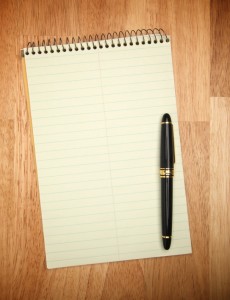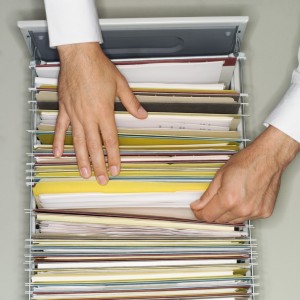It’s that time of the season, again! March begins, for many debaters, the commencement of the post-season. For most, there will be some sort of culminating experience such as a city championship, a state championship, a national championship (such as NFL nationals, NAUDL nationals, the Tournament of Champions, NCFL nationals, the NDCA, etc.) at which they’ll give the year their last, and best effort. From the beginning of the season, most debaters have their eye on that prize and hope that they’ll qualify for, and do well at their final competition.
Post-season competition presents very particular challenges and a very specific type of pressure. Competition is often harder at a national championship because the competitors represent only the best from each district or squad. Our nerves are on edge because this is our last chance to win debates and either set the tone for the next year or end a long debate career having done everything we’d hope we would. It’s tougher to succeed in this environment because you can’t really “practice” a national championship tournament.
Today, we have 5 tips for competing successfully in the post-season from coaches and debaters who have been there. We’ll start with one of the most obvious (but undervalued):
1. Take qualification seriously. In order to play in the post-season, you need to qualify. The process is different everywhere, but there’s a serious temptation to do one of two things:
a. Assume you’ll never qualify because everyone else is too good. If you’re younger, less experienced, or had a less successful season than many of your competitors, it’s tempting to back off in the home stretch. The impulse to do so is understandable: the season is long and difficult and you probably have exciting events like prom and Spring Break coming up. That said, you are really doing yourself a disservice by embracing your so-called inevitable defeat. Many promising careers have been launched by refusing to quit and peaking at the end of the season. Consider this: the fatigue you’re feeling is not unique to you. Everyone is tired and a little complacent. You can take advantage of this by trying your hardest to qualify to the national tournaments you thought were out of reach. Work hard and you’re likely to catch some exhausted seniors unaware or take advantage of an opponent who underestimates you based on your previous record. One of our former coaches said: No one remembers who won the first tournament, but everyone remembers who won the last one. What he meant was, once your qualifying tournament begins, it’s like all bets are off. This is the time for up-and-coming debaters to get noticed, so be one of them.
b. Assume you’ll definitely qualify and slack off because you’re saving all your effort for nationals and need a break. If you’ve had a successful season, it’s tempting to take a deep breath in the lull before the post-season. Your success likely came at the cost of a lot of late nights, a lot of missed opportunities to see friends, and more than a little frustration. Having made those sacrifices, it’s easy to feel entitled to a breather. Don’t take one. Qualifying tournaments are basically made for upsets because, if you’re at the top, everyone is trying to beat you while you’re stuck trying to predict who will have a breakout tournament. Stay focused. If you’ve come this far successfully, you know what to do to win, so keep an even pace and resist the urge to drop the ball. You had your halftime over winter break. This is the 3rd quarter and you need to cement your lead.
2. Do an assessment. You’re at the point in the season where you have some important knowledge about yourself and the topic, so take advantage:
a. Look at your strategies and be honest about the results. Thumb through your files and ask yourself how many debates you’ve won and lost on each argument. Accounting for outliers (say, you only read this argument once and it was against the best team in the nation), try to account for patterns. Did you seem to win more debates going for this counterplan than that one? How was your record on this disadvantage? Is it time to let go of that crazy critique you thought you’d try out but never got the hang of? Pare down your arsenal to those things you’ve done well with and de-emphasize the things you’ve done poorly. There’s not enough time now to fix major understanding issues or to learn something complex.
b. Flip through your judge feedback. Do certain comments keep popping up? Say, you were too ambitious in the final speech or you need to work on your debate theory? Pick 3-4 major issues and focus your drills and practice debates on these. Since you can’t fix everything, try and fix the things that most need to be fixed. Save the rest for next season or for college. You’ll get the best results if you focus and the worst results if you’re so fixated on perfection that you make the perfect the enemy of the good.
c. Figure out which debates were your worst and why. For example, do you feel like every time you debated a certain argument, you were confused and fell apart? Was there one team that you just couldn’t beat because you had a poor strategy? It’s hard to say what you’ll come up with in this process, but patterns easily emerge if you look for them. Try to narrow this list down to 6-7 priorities and work from there.
3. Don’t reinvent the wheel. Once you have your priorities, filter them again according to what’s realistic versus what isn’t. The easiest way to tell is to consider:
You have [x] weeks/days/months until the tournament.
You will spend [x] hours on debate, on average, per day during this time.
Now, estimate hour numbers for each goal. For example, you want to do at least 4 2NR drills on a theory argument before the tournament. The drill itself, plus re-dos and feedback will take about an hour. Write a ‘4’ next to this number on the list. Do this with each item, and be honest. You know you can’t write a new high speed rail negative in an hour.
If your priorities and the number of hours you have are equal, you can stop here. If you have more work ahead of you than hours, you need to prioritize again. The best bargain is to trim anything from the list that will take a huge share of your time. It may seem like the things that take the longest should receive the highest priority, but it’s late in the season and those things are too “expensive” in terms of hours now. Costly items are best dealt with next year or in college. You want to load up on “cheaper” buys now because you’ll get more of them, realistically, by game day. Think of it this way: You save up all summer for the pricey stuff and you’ve spent most of your money by the end of the year. Now you need to stretch your time as far as it will go.
One caveat: When doing this, try to make sure that you get a roughly 80/20 split between research (being 80%) and skills work (being 20%). The reason for this is because skills work naturally takes less time.
If all this seems too complicated (although I highly recommend this exercise because it forces you to be realistic and plan for success), just focus on this general principle: You won’t fix huge issues before the last tournament, but you will fix small ones. There is a trade-off between big and small ones when time is finite.
4. Create “best of” files. Over a season, you accumulate a lot of stuff. Not all of it represents your best work. Do some Spring Cleaning. It’s pointless to haul a bunch of bad evidence to nationals because there’s only a risk you’ll read it without paying attention. Go through your stuff and throw away anything that is objectively bad, old, or useless (still carrying around cards about the election?). Resist the urge to hold onto things just because “it’s the only card you have” and try to cut something better on this question instead. Move your best evidence to the top.
This has a few benefits. First, obviously, it gets you organized and disposes of things that could hurt you in debates. Second, it forces you to revisit files that you may not have read through in a while and assess their overall quality while reminding yourself of their contents and refreshing your topic knowledge.
You won’t do this with every file, of course, (no time) but you should try to do this with all the most important ones, the ones that you use often, and the ones that you’re best at reading.
(Note: This is a good thing to work on when you need a break or you feel like doing something a little less intense. It’s mostly sorting and throwing things away, which doesn’t require a ton of thought and can help you feel a little more in control of your stuff. It’s a little like how taking a break to clean off your desk makes you feel instantly calmer).
5. Leverage case lists. When every hour counts, you don’t want to be retreading territory that has already been tread a million times before. If you feel your answers to an argument are lacking, check scouting and case lists first to see what other people have done to deal with them. It may be that re-cutting some of these citations is all you need to make what you already have 100% better.
Also do a general re-check of the case list just to see what’s out there. If you’ve been focusing on the teams in your immediate area, you need to look broadly at what’s been going on nationwide. Since national tournaments draw from a wider, more geographically diverse pool, you’ll see some teams that you’ve never seen before. You don’t want to be taken by surprise with something they’ve been reading all year.
Don’t feel like you need to react to everything you read (for example, that one team three states away reads an argument doesn’t mean you need to pour a lot of work into it). Just be aware of the arguments that exist and think about them and how you’d deal with them if you encountered them.
(Note: This is a good way to get rid of nervous energy. The case list is huge, so you’ll have lots to scan through and can skim without really committing to reading.)
That’s all for today! Happy prepping, and stop back tomorrow for PART 2! Questions? Comments? Let us know in the comment section below!




Pingback: 10 Ways to Win an End-of-Year Championship, Part 2. « Free Debate Resources | Debate Central
I was looking eveerwhyre and this popped up like nothing!